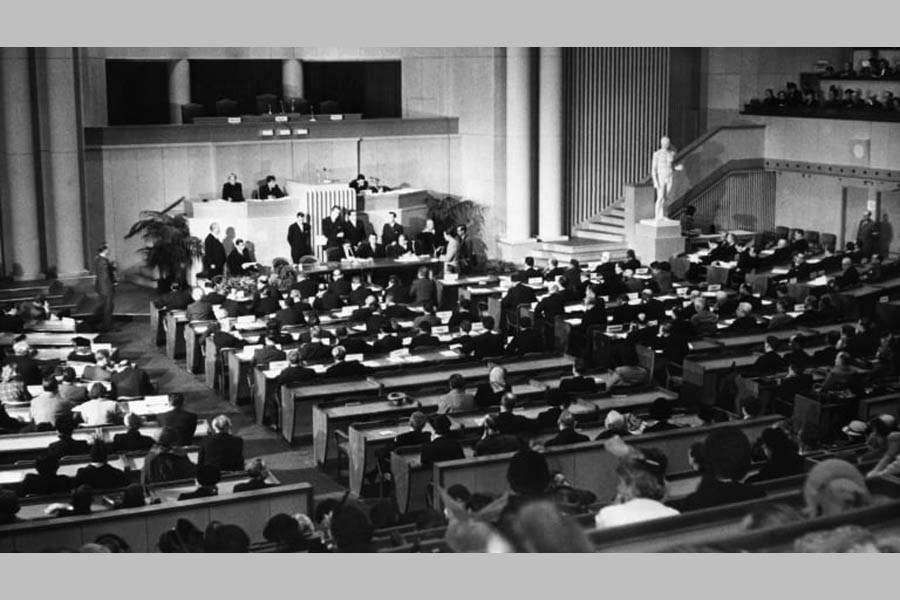World governments are not doing enough to stop armed groups from committing mass rape, torture and other war crimes, Peter Maurer, President of the International Committee of the Red Cross (ICRC), said on Tuesday (August 13).
Maurer said that 70 years after their adoption, the Geneva Conventions were being breached and urged world powers to clamp down on those who commit atrocities. "It is clear by the obvious terrible suffering in today's conflicts that [the Geneva Conventions] are not universally respected," Maurer told the UN Security Council via video link at an event to mark their 70th anniversary.
The four Geneva Conventions are international treaties that deal with the treatment of injured soldiers in the field and at sea, the treatment of medics and prisoners of war and how to protect civilians.
They were adopted on August 12, 1949, after lengthy deliberations.
For Maurer, they are increasingly tested by modern-day conflict. "There is no doubt that the modern battlefield is a complex arena; urbanised warfare, an increasing number of armed groups, partnered warfare are posing new and difficult dilemmas," Maurer said.
"Rapidly developing technologies are creating new front lines in cyberspace, as well as new ways to fight, for example, autonomous weapon systems and remote technologies."
UN diplomats pointed to Syria, where President Bashar al-Assad's forces, backed by Russian airpower, are accused of torture, bombing civilians and using poison gas as they claw back rebel-held territory in the country's eight-year civil war.
In Yemen, both the Iran-backed Houthi rebels and the Saudi Arabia-led coalition have reportedly attacked civilians, schools and hospitals and recruited child soldiers in the protracted conflict.
Elsewhere, investigators have probed violations of international humanitarian law in Libya, the occupied Palestinian territories and in several African hotspots, including DRC, South Sudan and the Central African Republic.
Governments should sign up to humanitarian law treaties, pass domestic legislation, train more war crimes sleuths and raise the ethical standards of soldiers, said Maurer, a former Swiss ambassador. Polish Foreign Minister Jacek Czaputowicz said military field commanders needed to know that pulling the trigger on an ethnic cleansing campaign could well see them end up in the dock of The Hague.
Czaputowicz, a pro-democracy activist during Soviet times, said the rules of war were "not sufficiently observed" in such conflict zones as Libya, South Sudan, and the Donbas region of eastern Ukraine.
The original Geneva Convention, which covered the "amelioration of the condition of the wounded in armies in the field", was adopted in 1864 as proposed by Henry Dunant, who founded the ICRC.
In the years leading up to the second world war, the ICRC drafted extra treaties to expand protections for civilians who got caught up in combat, but governments did not commit to the new rules.
The horrors of the second world war galvanised momentum and governments agreed to revise and update the conventions in 1949, adding a fourth to protect civilians and property in wartime. Two extra protocols were added in 1977.
The conventions are largely universal, having been ratified by 196 countries, including all members of the world body and observers like Palestine, the most recent authority to sign up to the treaties in 2014.
—Inter Press Service


